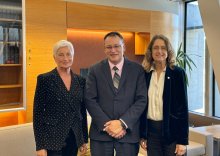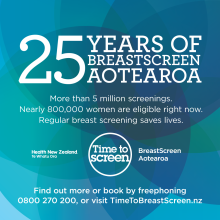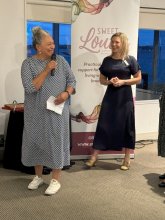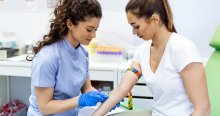BCAC urges you to sign this petition, lodged by Catherine Cooke, asking the government to fund Keytruda for early stage triple negative breast cancer (TNBC). We applied to Pharmac for funding of Keytruda for early and advanced TNBC in November 2022.
Breast Cancer Foundation NZ and Sweet Louise have just launched their Breast Cancer Journey Mapping Project. The aim is to better understand the experiences of New Zealand women who have faced breast cancer and to use the insights gained to ensure that all women have a better experience.

Could you spare about 2hrs helping us understand Cancer Related Cognitive Impairment or ‘Brain Fog’?
WHY: To see if the brain changes in those who have cancer or get treatment.
WHO: Women who have just received a breast cancer diagnosis AND women who are healthy and want to help.

Pharmac’s announcement that they will fund the breakthrough medicine Enhertu (trastuzumab deruxtecan, T-DXd) from 1st January 2025 for advanced HER2 positive breast cancer (HER2+ ABC) is fantastic news.
Libby Burgess, chair of BCAC, says: “We’re delighted to see this vital medicine funded given the outstanding results from clinical trials showing that Enhertu keeps the cancer stable for four times as long as the previous best treatment and increases length of life. We’re very pleased…

Chair Libby Burgess and Secretary Fay Sowerby recently delivered BCAC’s 2024 Ministerial Briefing to Hon. Dr Shane Reti, Minister of Health. The briefing identifies priority areas for action to improve breast cancer outcomes. (You can read the full briefing by clicking here). Libby and Fay also met with Hon.…

Over the last 25 years, BreastScreen Aotearoa (BSA) has provided more than 5 million free screening mammograms to New Zealand women. BCAC is pleased to see BSA celebrating this milestone and we encourage all eligible women to take advantage of the national screening programme. All women aged between 45 and 69 are entitled to a free mammogram every two years.

International Metastatic (Advanced) Breast Cancer Day was celebrated in style with the Auckland Harbour Bridge bathed in blue, green and pink lights. Sweet Louise, a charity dedicated to supporting New Zealanders with metastatic breast cancer (MBC), hosted an event at the Royal NZ Yacht Squadron, the perfect venue to enjoy the lights on the bridge.

If you have had axillary (armpit) lymph nodes removed during breast surgery, you may have been told that you should avoid any medical procedures involving needles on the affected arm. This traditional advice was based on the idea that using needles on this arm might increase the risk of lymphoedema.

It’s wonderful news for those with HER2 positive (HER2+) advanced breast cancer (ABC) that Pharmac proposes to fund Enhertu (trastuzumab deruxtecan, T-DXd), a breakthrough HER2-targeted medicine, from 1st January 2025.
Enhertu has been shown to keep HER2+ ABC disease stable four times longer than current treatments, and results in a longer survival time. This time is precious for New Zealand women with breast cancer and we’re delighted to see that Enhertu will be funded.

One of the biggest challenges in any diagnosis, and treatment journey, is finding positivity during very worrying and difficult times.





